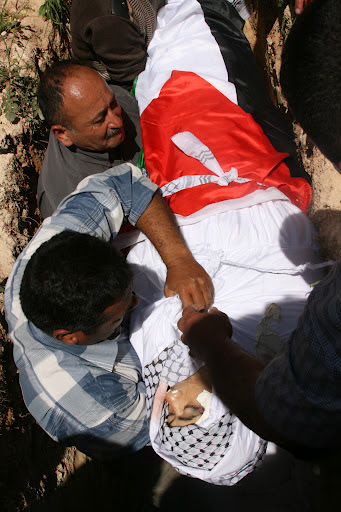Tag: Huwwara
-
Israeli soldiers violently brake into two houses in Nablus, Kidnapping one person
12 January 2013 | International Solidarity Movement, Occupied Palestine Last night more than forty Israeli soldiers invaded the city of Nablus and raided two homes looking for two young men. One of them was arrested during the raid and the other one avoided arrest as he was working at the time of the raid. At…
-
Israeli soldiers occupy a home in Huwwara
14 December 2012 | International Solidarity Movement, Occupied Palestine Israeli soldiers occupied the home of a family in the village of Huwwara, south of Nablus, for three days, between Sunday 11th and Tuesday 13th December. Prior to occupying the home, the soldiers had entered into the house twice. Family members living in the house recounted…
-
Fadi Abu Zeitoun, killed as settlers attacked farmers
by Rana H. 9 April 2012 | International Solidarity Movement, West Bank Israeli settlers attacked and chased a group of Palestinian farmers last Thursday, causing a tractor to flip over during the chase, causing the death of the Palestinian driver. On Thursday, April 5th, armed settlers from the illegal Israeli colony of Itamar attacked a…

